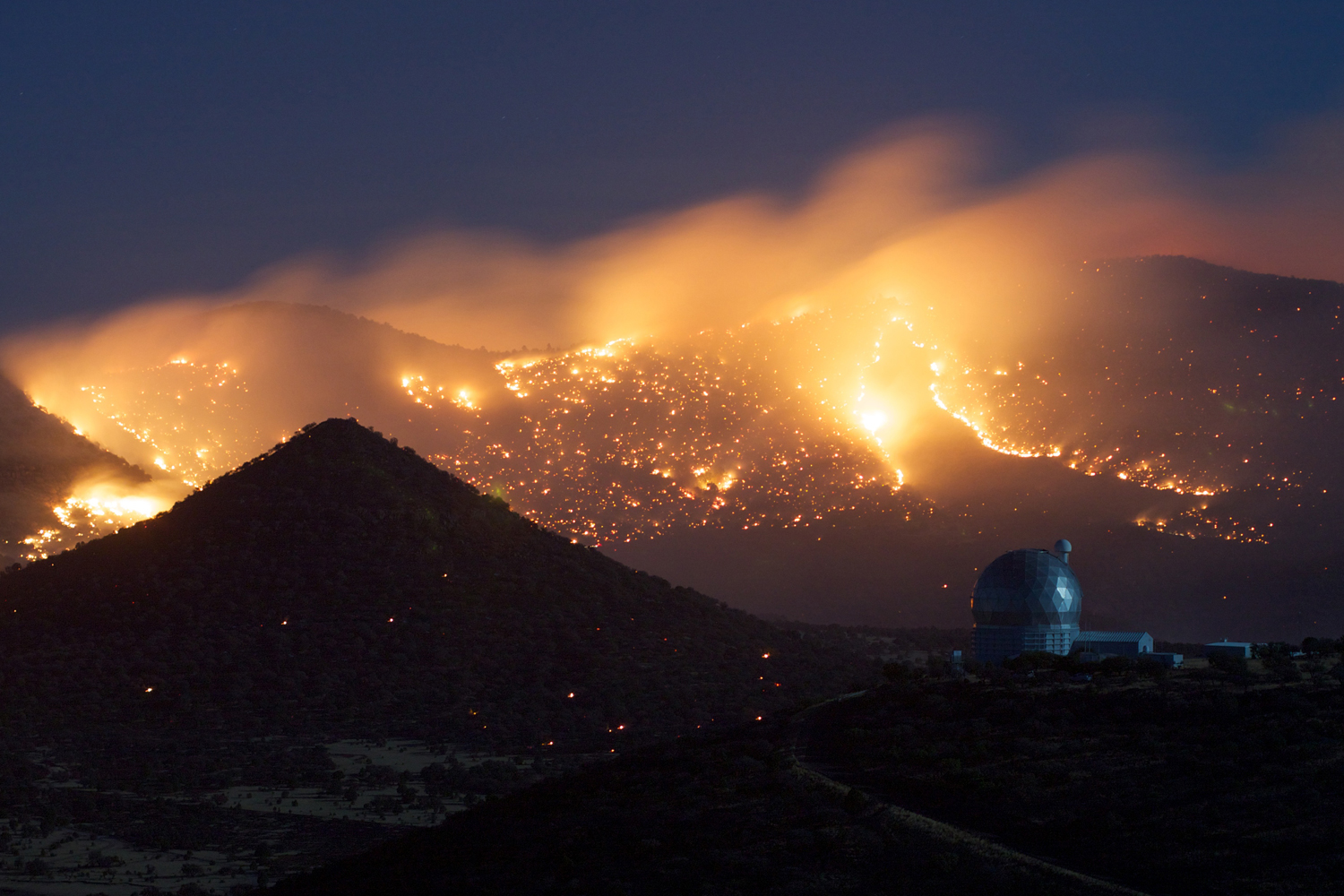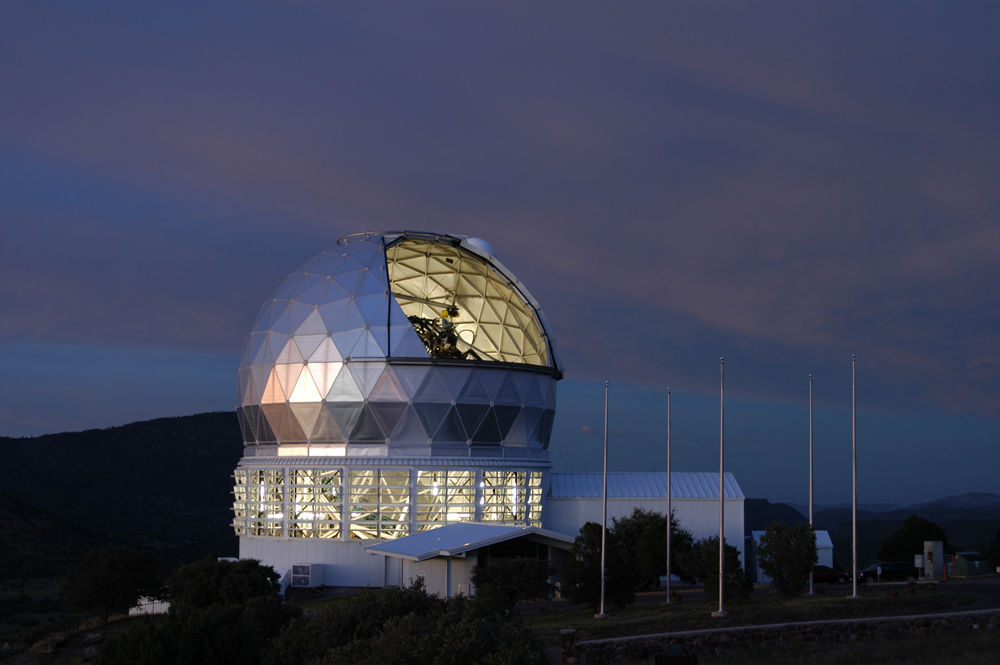McDonald Observatory Gets Wild View of Texas Wildfires

A week after the Texas wildfires cut power to the McDonald Observatory, the worst appears to be over, according to Anita Cochran, the associate director of the observatory.
Observations have resumed and the astronomy center is scheduled to open to the public today (April 20), after surviving a close call with menacing wildfires.
At the observatory, located in West Texas, wildfire weather conditions have been among the worst in the state's history. Dry grass and dry air, along with hot temperatures and howling winds, are fueling the sprawling wildfires that have scorched a million acres across the state, according to the Texas Forest Service. [Photo of McDonald Observatory Amid Wildfires]
Things were heating up at McDonald this weekend, so the Texas Forest Service ran controlled burns on Sunday to get rid of all the fuel on the nearby mountains. [Wild Images of Texas Wildfires]
"They were pretty scary looking, but were actually a good thing," Cochran told OurAmazingPlanet. "The observatory looks to be pretty safe right now."
The fires are no longer bearing down on the observatory, and the burns will block them from doubling back.
Images show dozens of small hotspots still dotting the canyons, hills and peaks behind the Hobby-Eberly telescope, the fourth-largest in the world.
Get the Space.com Newsletter
Breaking space news, the latest updates on rocket launches, skywatching events and more!

The telescope was shut down when the observatory lost poweron April 11, as wildfires knocked out power lines in the area. The observatory's dome was shut and backup generators powered the facility. The backup power was not strong enough to open the observatory's roof, but astronomers would not have conducted observations anyway, because smoke corrodes the mirror surface, Cochran said.
Smoke still lingers in the area, but the winds are blowing away from the observatory and the Hobby-Eberly dome was open yesterday and observations resumed — despite a little ash on the telescope, Cochran said.
Wednesday, all regular programs are scheduled to resume, including a special viewing on the on the Harlan J. Smith telescope.
While the observatory was shut down to astronomers, it was briefly home to Fort Davis residents that were forced to flee their homes as the fires raged toward them on Saturday. The number of evacuees wasn't counted, but there were approximately 30 in rooms and a handful of RVs in the parking lot, Cochran said.
Brett Israel is a staff writer for OurAmazingPlanet, a sister site to SPACE.com. You can follow him on Twitter @btisrael.
Join our Space Forums to keep talking space on the latest missions, night sky and more! And if you have a news tip, correction or comment, let us know at: community@space.com.
Brett Israel was a staff writer for Live Science with a focus on environmental issues from 2009 to 2013. He holds a bachelor’s degree in biochemistry and molecular biology from the University of Georgia, a master’s degree in journalism from New York University, and has studied doctorate-level biochemistry at Emory University.










